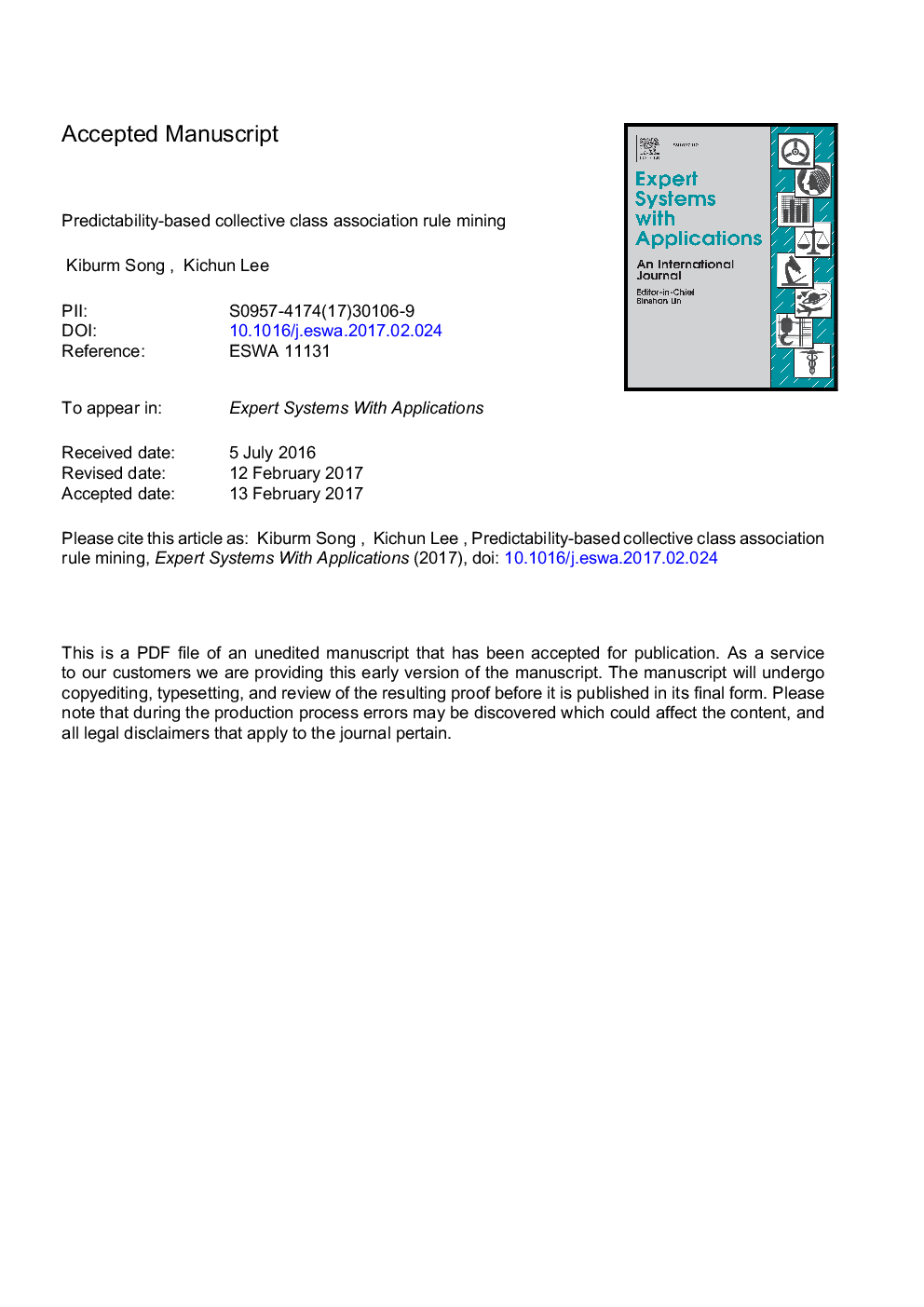| Article ID | Journal | Published Year | Pages | File Type |
|---|---|---|---|---|
| 4943489 | Expert Systems with Applications | 2017 | 32 Pages |
Abstract
Associative classification is rule-based involving candidate rules as criteria of classification that provide both highly accurate and easily interpretable results to decision makers. The important phase of associative classification is rule evaluation consisting of rule ranking and pruning in which bad rules are removed to improve performance. Existing association rule mining algorithms relied on frequency-based rule evaluation methods such as support and confidence, failing to provide sound statistical or computational measures for rule evaluation, and often suffer from many redundant rules. In this research we propose predictability-based collective class association rule mining based on cross-validation with a new rule evaluation step. We measure the prediction accuracy of each candidate rule in inner cross-validation steps. We split a training dataset into inner training sets and inner test sets and then evaluate candidate rules' predictive performance. From several experiments, we show that the proposed algorithm outperforms some existing algorithms while maintaining a large number of useful rules in the classifier. Furthermore, by applying the proposed algorithm to a real-life healthcare dataset, we demonstrate that it is practical and has potential to reveal important patterns in the dataset.
Related Topics
Physical Sciences and Engineering
Computer Science
Artificial Intelligence
Authors
Kiburm Song, Kichun Lee,
